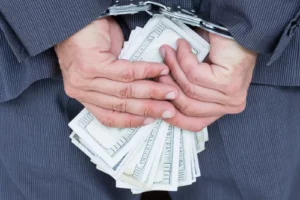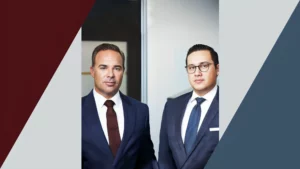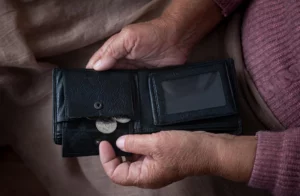Updated June 30, 2021.
Robinhood, the stock trading startup valued at $11.7 billion, has seen as much volatility as the equities market it allows its users to trade in over the last two years. The brokerage, previously notorious for its less-than-transparent approach to business, is in hot water over its app’s performance during pandemic market volatility. As of April, 2021, there are more than 50 class action lawsuits against the fintech superstar.
Today, June 30, 2021, Robinhood Financial LLC has been hit with a Finra-record $70 million penalty for:
- The trading outages, which cost investors millions
- For misleading millions of customers by negligently providing false information about investments
- For allowing clients to trade options that were not appropriate for their investment goals or their sophistication as investors.
As pressure begins to mount over these recent outages and the more traditional shady broker practices of providing false information and unsuitable investment sales, let’s look at the company’s history of playing fast and loose with regulators, users’ trust, and their money.
The Many Missteps of Robinhood Financial LLC
12/14/2018 – After rolling out a checking account paying a whopping 3% interest, Robinhood is forced to roll it right back in. Claims that the deposits of users are guaranteed by the SIPC turn out to be less than truthful, and experts observe that the brokerage is trying to enjoy the benefits of being a bank (low risk access to customer deposits) without the requisite and necessary regulation.
11/5/2019 – Users discover and exploit a loophole in the Robinhood app that allows for unlimited leverage when making trades. One trader brags about opening a $1 million position funded by a $4,000 deposit.
12/19/2019 – The Financial Industry Regulatory Authority fines Robinhood $1.25 million for failing to ensure customers were getting the best deal on their orders. Brokerages are required to ensure best order execution on behalf of their clients. Robinhood failed to do so and was forced to settle with FINRA.
3/2/2020 – Robinhood’s platform outage during a hugely volatile day in the equities market prevents users from trading or accessing funds for the majority of trading hours, from 6:30am to 11:00pm Pacific time. Traders lose out on millions in potential profits as the stock indices add more than 4% in gains over the course of the day.
3/3/2020 – At the same time that the platform suffers another outage, from 6:30am to 9:00am Pacific, Robinhood’s co-founders and co-CEOs publish a blog post, placing blame for the outage on stress placed on the app’s infrastructure. The company’s user agreement says it isn’t liable for extended interruptions due to failures beyond the company’s control.
The company offers compensation for users of its premium subscription service, Robinhood Gold, in the form of a free three months. The service allows users to borrow money at 5% per day and have access to Morningstar research reports. The price for the service is $5 per month, for a total of $15 in compensation. On a day the markets gained $1.1 trillion in value.
3/4/2020 – Travis Taaffe, a Robinhood investor, files a class action lawsuit in the US District Court for the Middle District of Florida in Tampa, “seeking recovery of damages that were proximately caused by Defendants’ failure to provide and maintain a suitable platform for its users.”
According to legal filings, Taaffe and the other class members are traders making use of the platform, and were not able to “access their cash, securities and/or other property kept on the Robinhood platform, let alone use Robinhood’s services to buy, sell or trade securities. This breach caused Plaintiff and class members to miss out on some of the highest single-day market gains in recorded history.”
The lawsuit claims the class members are entitled to more than $5 million in damages. The suit lists Robinhood’s 10 million users as potential members of the class. It is clear that the damages could rise substantially if the plaintiff class grows.
3/9/2020 – Robinhood suffers another outage, making the platform inaccessible to one extent or another from 6:30am to 12:30pm. During this time, the Dow Jones Industrial Average was in the midst of a freefall that would see it drop more than 2,000 points, the most since the 2008 financial crisis.
3/26/2020 – Robinhood offers $75 in compensation for traders who claim losses from the outages. $75 is the exact amount users must pay the company should they wish to withdraw their funds or transfer their shares of stock.
4/1/2020 – A federal judge denies a request to stop Robinhood from reaching out to users regarding the $75 goodwill credit because the plaintiff “failed to establish a clear record of abusive communications by Defendants,” according to court documents. To be continued.
11/9/2020 – Robinhood is the subject of a class action suit in Miami-Dade District Court. The suit alleges the novice-friendly stock-trading app failed to warn thousands of its customers, unsophisticated investors, about the possibility of abnormal fluctuations in a company’s stock value.
12/16/2020 – The regulatory arm of the Massachusetts Securities Division filed a complaint alleging that Robinhood failed in its duty to its customers to protect their assets and subjecting them to unnecessary trading risks. Those risks include the “gamification” of trading; allowing customers to easily buy and sell securities with an interface and push notifications that are more like a video game than an online trading platform.
12/17/2020 – Robinhood paid $65 million to the SEC to settle charges that the brokerage made “repeated misstatements that failed to disclose the firm’s receipt of payments from trading firms for routing customer orders to them, and with failing to satisfy its duty to seek the best reasonably available terms to execute customer orders.”
1/28/2021 – In wild, unprecedented market volatility as the result of a standoff between Wall Street short-sellers and large groups of retail investors, Robinhood seemingly comes down on the side of the big banks by halting trading in certain stocks, including Gamestop $GME and AMC Theaters $AMC. Lawsuits alleging that the forced halt in trading and limits on how much stock customers could purchase were filed almost immediately.
2/25/2021 – Robinhood states in a regulatory filing that it has become the subject of 46 putative class actions and at least three individual lawsuits stemming from the Gamestop fiasco. In addition, four class actions have been filed related to Robinhood’s trade order flow. Order flow, which routes app users’ trades to brokers who then execute those orders, is how Robinhood makes its money. The fees have come under increasing scrutiny following the trading halt in January.
6/30/2021 – Robinhood Financial LLC has been hit with a Finra-record $70 million penalty for trading outages during times of volatility, which cost investors millions; for misleading clients by negligently providing false information about investments; and for allowing clients to trade stock options that were not appropriate for their investment goals or their sophistication as investors.
As the world and markets continue to reel from the effects of the global coronavirus pandemic, political uncertainty and overall market volatility, it is becoming increasingly clear that Robinhood’s users should be taking a hard look at the company’s actions. With legal action already underway across the country, the possibility of more class actions continues to grow.







